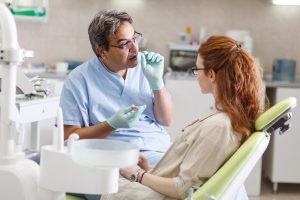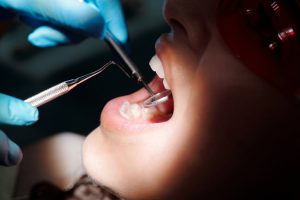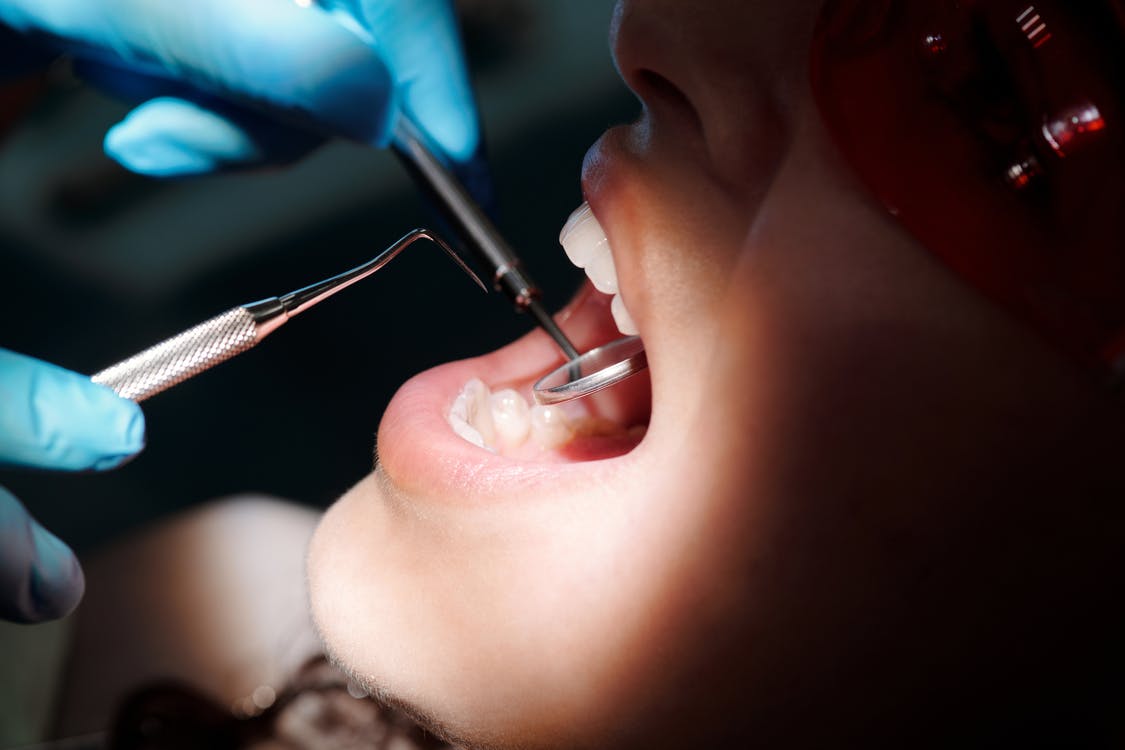Understanding how to become an orthodontist in the UK involves first obtaining a dental degree (BDS or BChD), followed by a year of Dental Foundation Training. Orthodontists are specialist dentists who diagnose and treat dental and facial abnormalities. Their work includes aligning crooked teeth and jaws, restoring oral function, and bringing smiles to life with braces, aligners, and other corrective tools. Training to become an orthodontist is both challenging and rewarding, allowing you to make a positive difference in patients’ smiles and self-esteem. In this guide, we will discuss how to become an orthodontist in the UK, the skills and qualifications needed, and tips for success.
What Does an Orthodontist Do?
Orthodontists are dental specialists who use their expertise to diagnose and treat malocclusions (misaligned bites) and dental irregularities. Key responsibilities of an orthodontist include:

- Diagnostic Dentistry/Migrations of Teeth/Jaw: Orthodontists examine patients’ oral and facial functions to identify issues like crooked teeth, overbites, and jaw malpositions. They use diagnostic techniques, including X-rays and impressions, to gather detailed information. This comprehensive assessment is essential for tailoring treatment plans. Their expertise ensures effective solutions for both aesthetics and function.
- Treatment Plans: Based on their diagnosis, orthodontists create customised treatment plans to align teeth and jaws effectively. These plans may include braces, clear aligners, and retainers tailored to each patient’s needs. Factors like age and dental history are considered to optimise results. Regular evaluations help adjust the plan as necessary throughout the treatment.
- Fitting and Adjusting Orthodontic Devices: During treatment, orthodontists fit braces or aligners, ensuring patient comfort and effectiveness. They monitor progress and make adjustments to achieve the desired outcomes. Regular appointments are crucial for tracking changes and ensuring devices function properly. Patient satisfaction is a priority throughout this process.
- Providing Preventive and Post-Operative Care: Orthodontists focus on educating patients about oral hygiene and the care of orthodontic appliances. After treatment, patients receive retainers to maintain teeth alignment and prevent relapse. Follow-up appointments are essential for monitoring retention and addressing any concerns. This comprehensive approach enhances long-term results.
- Teamwork with Other Dentists: Orthodontists often collaborate with other dental professionals, such as oral surgeons and general dentists, to provide comprehensive care. This teamwork ensures all aspects of a patient’s dental health are addressed. Effective communication among specialists leads to integrated treatment plans. Such collaboration enhances overall care and outcomes.
- Boosting Appearance and Oral Function: Orthodontics enhances aesthetic appeal while improving oral function, such as chewing and speaking. Correctly aligned teeth contribute to better overall oral health. Addressing alignment issues helps prevent future dental problems. Ultimately, orthodontics boosts confidence and enhances both the appearance and functionality of smiles.
Average Orthodontist Salary in the UK

The salary of Orthodontists in the UK varies depending on experience, location, and whether they work in the NHS or private practice. Those who are just completing their training typically start with a salary ranging from £30,000 to £45,000 a year. As orthodontists gain more experience, credentials, and a patient base, their earnings increase significantly.
An experienced practitioner can expect to earn between £70,000 and £100,000 (or even more) if they work in private practice or own their own practice. Seasoned orthodontists and specialists in niche fields can earn as much as £150,000 a year.
Key Skills for a Successful Orthodontist
You should be an expert orthodontist with a combination of technical knowledge, caregiving, and entrepreneurial experience. Essential skills required for an orthodontist job include:
- Medical Background and Technical Expertise: Orthodontists must be clinically competent to diagnose and treat various dental conditions. This expertise involves a deep understanding of orthodontics, tooth structure, and biomechanics. Mastery of these areas is essential for effective treatment. Continuous education is vital to stay updated on advancements in the field.
- Mechanical Dexterity and Precision: The role demands precise handling of small tools and delicate dental instruments. Exceptional hand-eye coordination and manual dexterity are crucial for installing and adjusting orthodontic appliances. Fine motor skills ensure accuracy in every procedure. This precision directly impacts patient comfort and treatment outcomes.
- Communication and Patient Care: Orthodontists engage with patients of various ages about treatment plans and progress. Effective communication fosters trust and helps patients feel comfortable throughout their care journey. Empathy and interpersonal skills enhance the patient experience. Clear explanations also aid in setting realistic expectations.
- Solution-Oriented Thinking and Problem-Solving: Each patient’s orthodontic needs are unique and require tailored solutions. Orthodontists must evaluate complex dental structures and devise effective treatment plans. Troubleshooting challenges is a regular part of the process. Creativity and analytical thinking are essential for adapting to each situation.
- Attention to Detail and Organisation: Accuracy is crucial, as minor adjustments can significantly affect treatment outcomes. A detail-oriented approach ensures that each aspect of care is meticulously handled. Organised practices contribute to smoother workflows and patient experiences. This diligence ultimately leads to successful results.
- Business and Marketing Skills (Private Practice): Orthodontists in private practice must possess strong business acumen. This includes managing finances, recruiting staff, and effective marketing strategies. A pleasant patient experience is vital for retention and referrals. Cultivating a loyal patient base is essential for sustainable practice growth.
- Time Management and Teamwork: Collaboration with dental assistants, hygienists, and other providers ensures comprehensive patient care. Effective time management allows for a high-traffic schedule without compromising quality. Teamwork enhances efficiency and creates a positive work environment. Coordinated efforts lead to timely and effective patient outcomes.
How to Become an Orthodontist in the UK?
Several phases of education, training, and licensure are required to become an orthodontist in the UK. Also, it involves several stages of education, training, and registration. Below is a step-by-step guide to the pathway in the UK:

1. Obtain a Dental Degree (BDS or BChD): You must obtain a Bachelor of Dental Surgery (BDS) or Bachelor of Dental Science (BChD) degree. Dental school typically consists of about five years of full-time education, covering subjects such as anatomy, physiology, biochemistry, pathology, and clinical procedures. To gain admission to dental school, you must achieve high A-levels (or equivalent) in Biology and Chemistry. This dental degree provides the prerequisite education and practical training in general dentistry necessary for specialisation.
2. Practical Experience as a General Dentist (Foundation Training): Following your dental degree, you must undertake Dental Foundation Training (DF1), a one-year course that enables you to work as a general dentist in an NHS practice. This is a critical period for gaining clinical knowledge, learning to care for patients, and obtaining hands-on experience. Many dentists also opt to further their training through Dental Core Training (DCT), which exposes them to other dental specialities, including oral surgery, orthodontics, and paediatric dentistry.
3. Do Postgraduate Orthodontic Training: To become an orthodontist, you will need to complete a postgraduate speciality orthodontic training programme. The Specialist Training in Orthodontics (ST1-ST4) programme generally lasts three years and covers specialised orthodontic theory, practice, and research. It combines classroom instruction with hands-on clinical training, during which you will treat patients under the guidance of experienced orthodontists. Admission to an orthodontic speciality training programme is highly competitive and requires academic excellence, as well as passing the Membership of the Joint Dental Faculties (MJDF) or comparable exams.
4. Pass Membership in Orthodontics (MOrth) Qualification: As part of or following your specialty training, you must pass the Membership in Orthodontics (MOrth) examination, which is offered by the Royal College of Surgeons (RCS). Successfully passing the MOrth exam indicates that you are a trained expert and qualifies you as an orthodontic specialist. After obtaining the MOrth, you can apply to be added to the General Dental Council (GDC) Specialist Register in Orthodontics and begin practising as an orthodontist in the UK.
5. Check with the General Dental Council (GDC): All practising orthodontists in the UK must be regulated by the General Dental Council (GDC), which represents dental practitioners. GDC registration enables orthodontists to act ethically, provide quality services, and stay current through continuing professional development (CPD).
6. Find Work as a Qualified Orthodontist: Once qualified, you can practise as an orthodontist in various settings, including:
- NHS orthodontic practices or hospitals
- Private orthodontic practices
- Dental teaching hospitals or medical universities
- Specialist orthodontic centres
Many orthodontic specialists prefer private practice because it often offers greater earning potential and more control over their workdays. Some orthodontists choose to work part-time in the NHS or privately.
7. Consider Additional Specialisation or Business Opportunities: Orthodontists may further specialise in areas such as paediatric orthodontics, adult orthodontics, or specific treatment types (e.g., Invisalign, lingual braces). Alternatively, you might consider starting your own practice, which would require business acumen, marketing skills, and practice management expertise.
Tips for Aspiring Orthodontists
If you’re considering becoming an Orthodontists, here are some tips to help you on your journey:

- Develop Strong Communication and Patient Care Skills: Orthodontists frequently interact with patients of all ages, making robust interpersonal skills essential for success. Develop your ability to practice active listening to truly understand patient concerns. Clearly explain treatment options and solutions to ensure patients feel informed. Empathy is key; showing genuine care helps build trust and rapport. Strong communication fosters a positive experience, encouraging patient compliance and satisfaction.
- Gain Experience Immediately: Seek out field experiences in general dentistry or orthodontics to gain hands-on knowledge. Consider internships, placements, or mentorship under an established orthodontist. This direct practice will help you develop essential clinical skills. Immersing yourself in real-world settings provides valuable insights into patient interactions and procedures. Early experience equips you with a patient-centered perspective, which is critical for future success.
- Stay Up to Date with Orthodontic Technology: Orthodontics is a rapidly evolving field, with constant advancements in technology and treatment methods. Familiarise yourself with tools such as 3D imaging, digital orthodontics, and invisible aligners. Keeping up with these innovations not only improves your practice but also enhances patient care. Regularly attending workshops and training sessions will deepen your understanding of new techniques. Being tech-savvy ensures that you offer the most effective and modern treatment options available.
- Connect with Dental and Orthodontic Experts: Joining professional organisations like the British Orthodontic Society (BOS) provides invaluable networking opportunities. Collaborating with fellow orthodontists allows for the exchange of knowledge and experiences. Staying connected helps you remain informed about the latest developments in the field. Participation in training sessions and conferences enhances your professional growth. Building a strong professional network can also lead to mentorship and collaborative opportunities.
- Consider Business and Marketing for Private Practice: If you aspire to start your own orthodontic practice, developing business and marketing skills is crucial. Understanding budgeting and financial management will help ensure the viability of your practice. Learn effective appointment scheduling and office management techniques to streamline operations. Digital marketing strategies will attract new patients and enhance your brand’s visibility. A strong marketing approach is essential for building a loyal patient base and ensuring long-term success.
- Consider Business and Marketing for Private Practice: If you are thinking of starting your own orthodontic practice, it is important to develop skills in business, marketing, and management. Familiarise yourself with budgeting, appointment scheduling, digital marketing, and office management to create an efficient and profitable practice. Learn how to establish your brand and effectively market your services to attract and retain patients.
Get Qualified as an Orthodontist
Dentistry Basics for Dental Assistants, Dental Nursing Basics, Dental Assistant Comprehensive Course, Essential Skills for Dental Assistants
Frequently Asked Questions
Why Should You Be an Orthodontist?
A career as an orthodontist is both gratifying and fulfilling. Orthodontists play a crucial role in enhancing patients’ confidence, health, and overall quality of life. This profession combines clinical skills with creative problem-solving, allowing you to see the tangible results of your efforts. Additionally, orthodontics offers competitive salaries, opportunities for specialisation, and the potential for self-employment.
Is Orthodontics a Good Career Choice for You?
You may be a great fit for orthodontics if you have a passion for oral care, enjoy working with your hands, and strive for perfection. If you are dedicated to helping patients achieve healthier smiles, possess strong analytical skills, and wish to blend science with aesthetics, orthodontics could be the ideal career for you.
What Are the Future Pay Opportunities for Orthodontists in the UK?
There are ample opportunities for earning a good living as an orthodontist. Starting salaries for recruits typically range from £30,000 to £45,000 per year. With experience, qualifications, and a solid patient volume, salaries can increase significantly; experienced orthodontists often earn between £70,000 and £100,000 or more. Those with private practices or specialising in more complex interventions can earn upwards of £150,000 annually.
What Does a Dental Assistant Need to Learn to Do Orthodontics?
Dental assistants typically possess basic qualifications such as the BDS (Bachelor of Dental Surgery) or BDH (Bachelor of Dental Science). They also complete Dental Foundation Training (DF1) and Specialist Training in Orthodontics (ST1-ST4). To become a recognised specialist, candidates must pass the Membership in Orthodontics (MOrth) examination and register with the General Dental Council (GDC).
Do You Need Experience Before Starting a Career in Orthodontics?
Yes, practical experience as a general dentist is essential before specialising in orthodontics. After completing your dental degree, you should undergo Dental Foundation Training (DF1) to establish clinical competence and develop the basic skills needed to provide care. Many dentists also gain further experience through Dental Core Training (DCT) before embarking on orthodontic speciality training.
What Are the Job Opportunities for Orthodontists?
Braces remain in high demand in the UK, as more people prioritise dental hygiene and aesthetics. Orthodontists can work in various settings, including private practice, NHS surgeries, hospitals, and educational institutions. The increasing use of braces and clear aligners among both children and adults has led to a growing demand for orthodontic services.
What Are the Career Progression Options for Orthodontists?
Orthodontists can advance their careers by working diligently, pursuing further education, and building a loyal patient base. Opportunities for progression include becoming a senior orthodontist, practice owner, orthodontic consultant, or clinical lead. Additionally, there are chances to specialise in areas such as paediatric orthodontics, orthognathic surgery, or craniofacial orthodontics.
What Are the Exit Options and Opportunities Ahead of Orthodontics?
The expertise gained as an orthodontist can be applied to many other areas within healthcare and beyond. Some may choose to enter dental teaching, research, healthcare consulting, or orthodontic product development. Others might explore broader career paths in practice management, healthcare administration, or public health.


